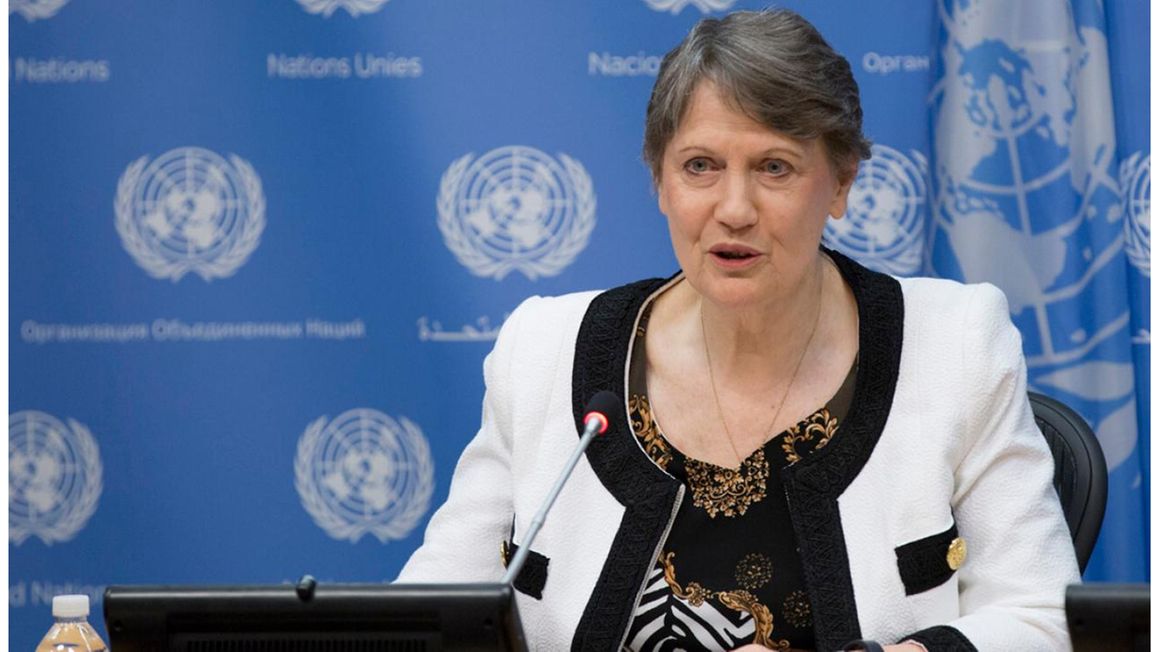
Former Prime Minister of New Zealand Helen Clark
By Helen Clark and Kersti Kaljulaid
As bombs rain down on defenceless communities in Ukraine, we have been reminded yet again of the
extreme vulnerability of women, children, and adolescents in conflict zones—and of the risks which health workers, trying to address their needs, face in times of conflict and crisis.On the occasion of World Immunisation Week, we acknowledge that basic health entitlements—from midwifery services to routine vaccination—are a crucial lifeline, especially under conditions of conflict. Yet, too many women and children are denied these services.
The horrifying situation in Ukraine is the latest in a growing number of humanitarian crises triggered by conflict; in 2020, a record fifty-six active conflicts were documented and last year Sub-Saharan Africa experienced its highest number of coups in 20 years. Thus, while Ukraine has captured the world’s attention, there are a number of other long-standing and growing conflicts that also deserve attention and political mobilisation from the global community.
Health and aid workers who are providing care at the frontline face immense and increasing challenges and risks. These circumstances also make it even more difficult for the most vulnerable women, children, and adolescents to access the care they need.
When health and aid workers become targets of conflict, the principles outlined in international humanitarian and human rights law also come under attack.
Many health workers become casualties of conflict, either as accidental victims of attacks, or as deliberate targets. Violence against aid workers claimed 484 individual victims in 2020, 117 of whom died, making 2020 the worst year on record for the second year in a row.
In Ukraine alone, 147 attacks on healthcare personnel, facilities, supplies and transport have been verified as of 19 April 2022, resulting in 73 deaths and 52 injuries. In Yemen, in an analysis by Save the Children in 2021, nearly half the healthcare providers interviewed reported being present at a healthcare facility during an attack, and 93 percent of health workers surveyed said that services at health facilities where they work have been repeatedly suspended due to attacks.
Where health workers are at risk, the lives of women, children, and adolescents are imperilled as well. More than 10 million deaths in children younger than five years between 1995 and 2015 globally can be directly and indirectly attributed to conflict.
Women of reproductive age living near high intensity conflicts are three times more likely to die than women in stable settings.
Similarly, as a result of the killing of eight polio workers in Afghanistan in February 2022, the national polio vaccine campaign was suspended in two provinces in Afghanistan—one of the few countries where polio is still endemic despite global efforts to achieve eradication.
Conflict has caused polio to re-emerge in otherwise polio-free countries. For example, Syria and Iraq have seen polio outbreaks for the first time in decades after the emergence of civil war.
Syria provides another stark warning of the reversal in progress that occurs when health workers are not able to provide services. It had achieved 80 percent coverage of the combined vaccination for diphtheria, pertussis (whooping cough), and tetanus (DPT) by 2010.
However, after years of devastating armed conflict, the coverage rate dropped to 47 percent in 2018. Similarly, Ukraine had 76 percent DPT vaccination coverage in 2012, but it fell sharply to 19 percent in 2016 after the 2014 Ukraine conflict. A similar, or worse, outcome is feared during the current conflict.
A marker of the inequities that children and their families face as a consequence is the prevalence of “zero-dose” children in such contexts.
These have received not even a single dose of the DPT vaccine. Zerodose children and their families live in communities excluded from social protections, and may lack access to some or all essential services across the continuum of sexual, reproductive, maternal, newborn, child, and adolescent health.
A multi-sectoral and equitable response
To protect those who protect us, there is an urgent need for targeted co-ordination of investments to promote safe service access, including delivery of vaccines and other essential services and commodities through multi-level and multi-sectoral private-public efforts.
For instance, when meaningfully engaged, local NGOs and civil society can significantly enhance the reach and operational flexibility of health interventions.
Where the government is party to an internal conflict, the humanitarian principles of neutrality, independence, and impartiality are often violated.
In these cases, the UN and other non-partisan actors need to lead a multi-sectoral and locally sensitive response based firmly on humanitarian principles.
If health workers are to provide vaccines and other essential services in these settings they require constant protection, as urged by the UN Security Council (Resolution 2286) and mandated by international humanitarian and human rights laws.
The international community should hold states and armed groups accountable for upholding international humanitarian law in the territories they control.
In addition, health workers should be recruited, trained, and resourced locally wherever possible.
This will help foster trust between health workers and the communities they serve, given their unique understanding of the local contexts. This is also vital to ensure a sustainable workforce, lower security threats, and greater retention of staff.
Global progress toward the health SDGs depends on recognising these disparities and targeting those settings that most need support to ensure continuity and access to services. Two years of the pandemic have already set us back badly, so there is no time to lose.
As the bombs continue to rain down in Ukraine and elsewhere, it is more necessary than ever to invest heavily in the safety and protection of health workers and to ensure continuity of services and supplies under fire.
Helen Clark is PMNCH Board Chair and former Prime Minister of New Zealand
Kersti Kaljulaid is UN Secretary General’s Global Advocate for Every Woman Every Child and former President of Estonia.
This article was first published by British Medical Journal (BMJ)

No comments:
Post a Comment